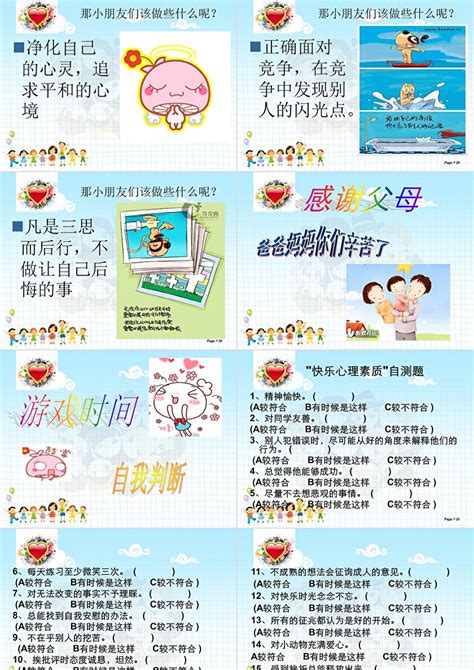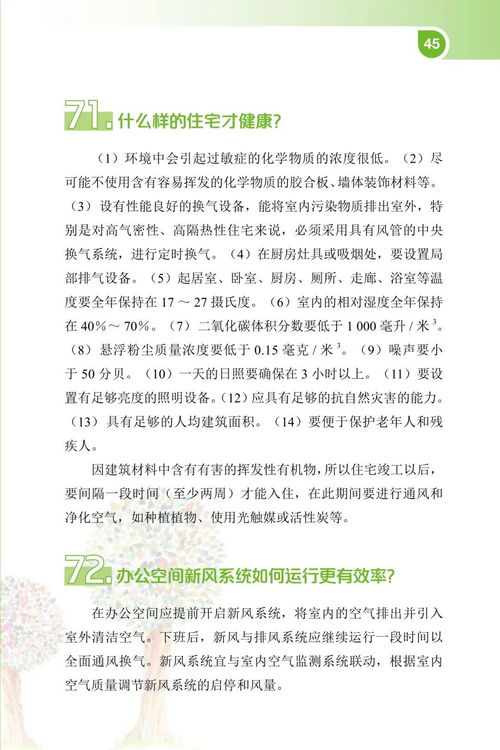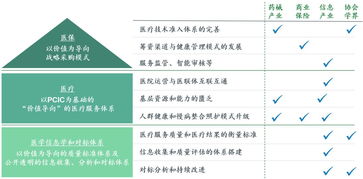小学生心理健康教育发言稿
Title: Promoting Psychological Wellbeing in Primary School Students: A Comprehensive Lesson Plan
Introduction:
Promoting the psychological wellbeing of primary school students is essential for their overall development and success in school and life. A welldesigned lesson plan can provide students with the necessary knowledge and skills to cope with challenges, manage emotions, and foster positive relationships. This lesson plan aims to address various aspects of psychological health, including selfawareness, emotional regulation, social skills, and resilience.
Objective:
To increase students' awareness of their emotions and how to manage them effectively.
To teach students strategies for building positive relationships and resolving conflicts peacefully.
To enhance students' resilience and ability to bounce back from setbacks.
To foster a supportive classroom environment where students feel safe to express themselves and seek help when needed.
Lesson Plan:
1. Introduction to Emotions (30 minutes)
Begin by discussing the concept of emotions and why they are important.
Introduce basic emotions such as happiness, sadness, anger, fear, and surprise.
Use examples and scenarios to help students identify different emotions in themselves and others.
2. Understanding Emotions (30 minutes)
Explore the idea that all emotions are valid and normal.
Teach students that it's okay to feel different emotions and that they can learn to manage them in healthy ways.
Introduce simple strategies for regulating emotions, such as deep breathing, taking a break, or talking to a trusted adult.
3. Building Positive Relationships (45 minutes)
Discuss the importance of positive relationships in our lives.
Teach students skills for effective communication, such as active listening and using "I" statements.
Roleplay scenarios where students practice resolving conflicts peacefully and empathizing with others' perspectives.
4. Developing Resilience (30 minutes)
Define resilience as the ability to bounce back from challenges and setbacks.
Share stories of resilience and perseverance to inspire students.
Teach students strategies for building resilience, such as maintaining a positive attitude, setting realistic goals, and seeking support from others.
5. Conclusion and Reflection (15 minutes)
Review key concepts covered in the lesson.
Allow students to reflect on what they have learned and how they can apply it in their daily lives.
Encourage students to share any questions or concerns they may have about their own emotional wellbeing.
Extension Activities:
Journaling: Encourage students to keep a feelings journal where they can write about their emotions and how they dealt with them.
Mindfulness Exercises: Introduce simple mindfulness exercises to help students stay present and calm during stressful situations.
Peer Support Groups: Establish peer support groups where students can talk openly about their feelings and support each other.
Assessment:
Monitor students' participation and engagement during class discussions and activities.
Review students' journals or reflections to assess their understanding of emotional regulation and resilience.
Use roleplays or scenarios to assess students' ability to apply conflict resolution skills.

Conclusion:
By implementing this comprehensive lesson plan, primary school teachers can play a crucial role in promoting the psychological wellbeing of their students. By equipping students with the necessary skills to understand and manage their emotions, build positive relationships, and develop resilience, teachers can create a supportive learning environment where students can thrive emotionally and academically.









